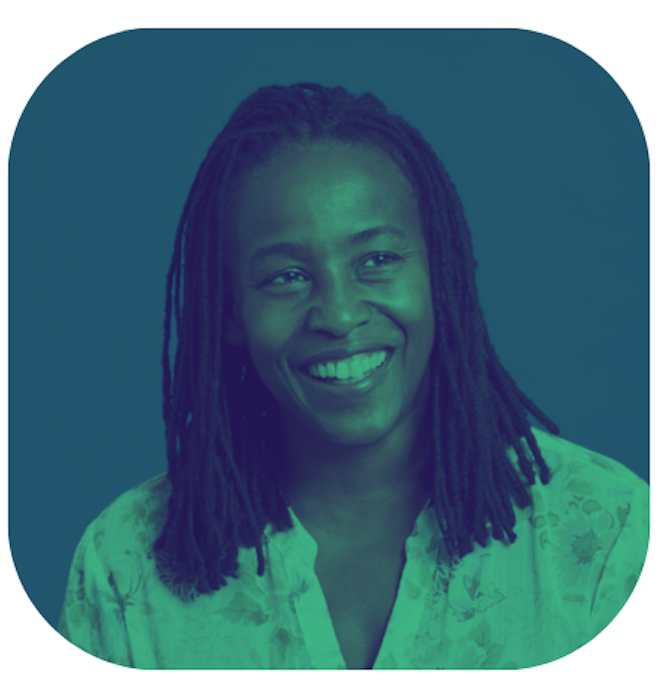Stephanie Dinkins is a transdisciplinary American artist based in Brooklyn, New York. Her work explores artificial intelligence (AI) and its intersections with race, gender, and history. Dinkins aims to “create a culturally attuned AI entity in collaboration with programmers and engineers and in close consultation with local communities of color that reflects and is empowered to work toward the goals of its community.”
One of Dinkins’ major projects is “Conversations with Bina48,” a series of interactions between the artist and Bina48, one of the first socially intelligent humanoid robots modeled after a Black woman. Through these dialogues, she investigates identity, AI biases, and the limitations of current technology. Another significant work, “Not The Only One” (N’TOO), is a deep-learning AI trained on three generations of her family’s oral histories. This interactive chatbot embodies a multigenerational narrative, demonstrating how AI can archive and interpret the lived experiences of marginalized communities.
Dinkins’ practice critically engages with digital colonialism, a term that describes how powerful institutions exploit and dominate digital data and resources, often to the detriment of marginalized groups. Her work highlights several key issues, including algorithmic bias and AI prejudices, where she reveals how AI systems reflect the biases of their predominantly white, male creators. This results in technologies that reinforce systemic discrimination against communities of color. Even Bina48, despite being modeled after a Black woman, exhibits biases inherited from its developers.
She also emphasizes the lack of representation in tech development, underscoring the importance of including people of color as creators and overseers of AI systems. Without diverse representation, these technologies fail to address the realities and needs of minority communities. Another major concern is data and story appropriation, as AI systems rely on large datasets for learning. Dinkins argues that marginalized communities’ histories, myths, and cultural knowledge are often extracted and used without acknowledgment or benefit to those communities, mirroring colonial practices in the digital age.
In response, Dinkins advocates for building equitable tech ecosystems by stressing the need to collaborate with communities in shaping AI narratives. She believes technology should serve all people, not just a privileged few. To further this mission, she developed “Afro-now-ism,” a framework that encourages Black communities to reimagine their identities beyond systemic oppression. This concept promotes expansive, critical thinking and sustainable community-driven tech development.
Dinkins’ artistic interventions challenge existing power structures in AI and push for more inclusive, socially aware technological advancements. Her works, including “Conversations with Bina48” and “Not The Only One,” function as acts of protest, intervention, and empowerment, ensuring that AI serves as a tool for equity rather than exclusion.

